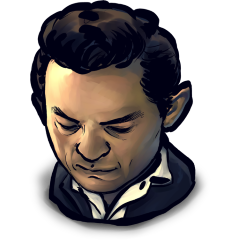pad 510 Final Exam Complete Solution
Question 1
1.
The Streams Metaphor is associated with which scholar?
Answer
Paul Sabatier.
John Kingdon.
David Easton.
Helen Ingram.
2 points
Question 2
1.
"Pork barrel" spending is most closely associated with which policy type?
Answer
regulatory policies.
distributive polices.
redistributive policies.
agenda policies.
2 points
Question 3
1.
The Advocacy Coalition Framework illustrates
Answer
The important role of interest groups.
How implementation takes place in policy subsystems rather than in one-to-one relationships.
How members of Congress can work together to set the national agenda.
The centrality of the executive branch in setting the national agenda.
2 points
Question 4
1.
Log rolling by legislators often leads to _______ spending
Answer
pork barrel
wise
cost effective
representative
transparent
2 points
Question 5
1.
From 2008 to 2011, the federal budget deficit as a proportion of GDP
Answer
Sharply grew.
Gradually grew.
Declined.
Remained flat.
Wildly changed as economic problems have come and gone.
2 points
Question 6
1.
Material inducements to join are most closely associated with which unofficial actors?
Answer
think tanks
news media
interest groups
political parties
2 points
Question 7
1.
The main critique of the "stages" model of the policy process is that it
Answer
is too complicated.
assumes a linear and orderly policy process.
ignores politics.
fails to account for the shortcomings of Congress.
2 points
Question 8
1.
The systematic study of bureaucracy was first associated with
Answer
Aaron Wildavsky.
Larry Sabato.
Max Weber.
Paul Sabatier.
2 points
Question 9
1.
The mutually reinforcing relationship between a congressional subcommittee, a federal agency, and regulated interest groups is known as the _____________model of policy relationships.
Answer
triple play
iron triangle
iron cross
golden triangle
iron network
2 points
Question 10
1.
The laws that made when judges and courts make decisions are called _____________
Answer
statutes.
case law.
regulations.
statues.
out laws.
2 points
Question 11
1.
Protective regulatory policy
Answer
regulates competition between actors in society and the market place.
distributes resources amongst various members of the public.
regulates the interactions between welfare recipients and the wealthiest members of society.
seeks to protect the public from the negative effects of private activity.
2 points
Question 12
1.
Political learning entails
Answer
learning about better strategies for making political arguments.
an evaluation of policy tools and techniques.
an analysis of attitudes towards program goals.
learning about how to use computer technology to improve implementation.
2 points
Question 13
1.
The news media
Answer
Have little role in the policy process because they simply cover celebrity news and fluff.
Are important for highlighting issues and problems, but do not generally provide policy solutions.
Are central to the policy process.
Are ignored by policy makers because they have their own source of expertise and information.
2 points
Question 14
1.
An economic depression is characterized by
Answer
extremely high unemployment and significant reduction in the GDP that is deeper and longer than a typical recession.
a period of economic contraction when the value of the GDP shrinks for two consecutive quarters.
a crisis in the stock market.
a rise in the national gross product.
2 points
Question 15
1.
If I were to say that focus of policy studies should be on the actions of the executive, legislative, and judicial branches, what approach to policy studies would I be adopting?
Answer
rational-choice theory
elite theory
institutionalism
group theory
pluralism
2 points
Question 16
1.
Which of these statements is true?
Answer
Voting turnout is always lower for congressional elections than for presidential elections.
Voting turnout is always higher for congressional elections than for presidential elections.
Voting turnout for presidential and congressional elections is roughly equal.
Voting turnout is dependent on fluctuating demographics.
2 points
Question 17
1.
Muckraking is a term applied to
Answer
activist groups holding demonstrations and rallies to force policy change.
descriptive journalism.
investigative journalism.
objective journalism.
2 points
Question 18
1.
The allocation of television and radio frequencies and the awarding of cable television franchises are examples of which policy type?
Answer
redistributive
competitive regulatory
protective regulatory
procedural
2 points
Question 19
1.
The phenomenon that involves members of a legislature agreeing to vote for each other's spending bills is known as _____________
Answer
voting.
logrolling.
vote winking.
a Yankee gentlemen's agreement.
proxy voting.
2 points
Question 20
1.
Social Construction refers to
Answer
urban sprawl.
the elite.
the process of defining problems and the causes of them.
changing conditions over time.
2 points
Question 21
1.
Outputs from the systems model of politics and policy include
Answer
Laws, regulations, and decisions.
Election results, public opinion, communication to elected officials, and personal experiences of decision makers.
Rules developed by administrative agencies.
Items and issues not essential to the policy process.
2 points
Question 22
1.
Official Actors in the policy process gain their role by virtue of:
Answer
monetary wealth.
a statutory or constitutional role.
vested interests.
heredity.
2 points
Question 23
1.
The theory that states that a few people in government, business, academia, and the media have a disproportionate share of the control over America's political and economic resources is called
Answer
rational-choice theory.
elite theory.
institutionalism.
group theory.
pluralism.
2 points
Question 24
1.
Group mobilization refers to the idea that
Answer
groups mount big get-out-the-vote campaigns.
people are apathetic and never get involved in policy making.
people can be persuaded to care about issues and become more active in discussions of politics and policy.
most people are always politically active and engaged in group politics in some way.
2 points
Question 25
1.
Government agencies are part of what branch of government?
Answer
judicial
legislative
executive
state government
2 points
Question 26
1.
The Advocacy Coalition Framework illustrates
Answer
the important role of interest groups and group alliances.
how members of congress can work together to set the national agenda.
the centrality of the executive branch in setting the national agenda.
the importance of arguing claims before the Supreme Court.
2 points
Question 27
1.
Evidence gathered using the scientific method is superior to anecdotal evidence because
Answer
scientists are smarter than other people.
the scientific method generally yields better knowledge than do anecdotes.
it's easier to gather evidence using the scientific method.
because there is only one scientific method that all scientists use consistently.
2 points
Question 28
1.
People belong to membership interest groups by virtue of
Answer
having joined and paid dues.
being a member of a profession.
joining an institution such as a university .
having an economic interest in the outcome of policy decisions.
2 points
Question 29
1.
The laws that are drafted by the legislature are called _____________
Answer
statutes
case law
regulations
statues
out laws
2 points
Question 30
1.
Why were the Articles of Confederation ultimately replaced by the federal Constitution?
Answer
Federal taxes were too high.
Many people thought that the national government was too weak to confront national challenges.
The smaller states felt they had less power under the Articles of Confederation.
The Articles of Confederation were set to expire in 1789 no matter what.
2 points
Question 31
1.
In scholarly research, a good theory should
Answer
generate hypotheses that can be tested.
solve pressing societal problems.
be easy to understand.
conform to what people know about how the world works.
2 points
Question 32
1.
The substantive area of policy over which participants in policy making compete and compromise is known as
Answer
the policy community.
the iron triangle.
an issue network.
a policy domain.
the issue arena.
2 points
Question 33
1.
Policy makers often use ______________ as a way of floating "trial balloons" to assess the reaction of the public to certain policy issues.
Answer
the media
other policy makers
focus groups
community forums
2 points
Question 34
1.
When we discuss the outcomes of policies we are concerned with
Answer
the substantive accomplishments of the policies.
the amount of money the government spends to implement a policy.
the number of people employed in enacting the policy.
the influence of the policy on congressional elections.
2 points
Question 35
1.
In the mid-1960s, David Easton first pioneered a model that states that the public policy process is a product of a system. The public policy process is influenced by and influences the environment in which it operates. This model is known as the
Answer
bi-linear model.
systems model.
linear model.
Dave's model.
analysis model.
2 points
Question 36
1.
The writing of vague policy and law by the Congress implies what for government agencies?
Answer
Highly restricted agency action.
The lack of administrative discretion.
A highly accountable government agency.
An opportunity for government agencies to shape policy through implementation.
2 points
Question 37
1.
When newspapers and other media talk about "playing politics" with an issue, they usually mean that
Answer
A policy issue is undergoing careful scientific analysis.
Various interests are competing, often in seemingly self-interested ways, to gain their goals at the expense of others.
An election is being held.
The president recommends a new policy initiative.
2 points
Question 38
1.
Casework is most closely associated with which group of actors?
Answer
interest groups
legislatures
the courts
think tanks
2 points
Question 39
1.
The daily newspaper of federal regulatory activity is called the ______________
Answer
Congressional Record.
Federal Register.
New York Times.
Regulatory Tribune.
Federal Regulatory Times.
2 points
Question 40
1.
The "Institutional Analysis and Development" framework, associated with Elinor Ostrom's work, describes policy making and change in terms of
Answer
long-term periods of stability in policy with short bursts of policy change.
the joining of problems, policies, and politics in "windows of opportunity" for change.
how groups join into larger alliances to promote shared interests.
the idea that boundedly rational people come together in "institutions" to pursue policy goals.
2 points
Question 41
1.
In American political philosophy, governmental authority is delegated from
Answer
the president.
the people.
the government.
the Constitution.
2 points
Question 42
1.
What is the key barrier to interest group growth and success?
Answer
Legal prohibitions against forming various types of interest groups.
The amount of time, effort, and expense it takes to create an effective interest group.
Poor media coverage of issues of importance to Americans.
Our federal system of government, which makes it hard to form interest groups.
2 points
Question 43
1.
A policy tool is
Answer
the law that compels action on the part of implementers.
a method through which government seeks to achieve a policy objective.
the equipment government uses to address problems, such as computers, police cars, or medicines.
an agent of the government whose job it is to implement policy.
2 points
Question 44
1.
An agenda in the policy process refers to
Answer
the semi-secret plans of interest groups to gain support for unpopular ideas.
the implementation of public policy.
the matters before public institutions that are available for discussion and decision.
the annual budget bill.
2 points
Question 45
1.
According to Stone one purpose of using numbers in problem definition is
Answer
to demonstrate the rationality of a certain policy solution.
the process of counting something makes people notice it more, and record keeping stimulates reporting.
numerical strategies prove facts.
numbers are easy to manipulate.
2 points
Question 46
1.
Classifying policies as either liberal or conservative is:
Answer
their ideological content.
to their cost/ benefit ratio.
the amount of support a political party gives them.
to their material or symbolic content.
2 points
Question 47
1.
Where does the greatest amount agenda setting power in Congress reside?
Answer
In the Committee Chairs.
In the Whips.
In the most Senior Members of Congress.
In the members from the largest states.
2 points
Question 48
1.
The separation of powers refers to
Answer
Relationships between the state and federal government.
The assignment of powers and duties to the legislative, executive, and judicial branches.
The relative strength of large states in presidential elections.
The difference in size and prestige between the House and the Senate.
2 points
Question 49
1.
The idea that interest groups are organized in policy communities within a policy domain is associated with which model of the policy process?
Answer
punctuated equilibrium.
systems model.
advocacy coalition framework.
streams metaphor.
2 points
Question 50
1.
Hearings, lawmaking, and congressional oversight hearings are used to
Answer
serve as a check on the bureaucracy.
enhance presidential power.
express appreciation for the fine work that bureaucrats do.
raise money for campaigns and elections.
2 points
Save and Submit
· Question 1
2 out of 2 points
The Streams Metaphor is associated with which scholar?
Answer
Selected Answer:
John Kingdon.
Correct Answer:
John Kingdon.
· Question 2
2 out of 2 points
"Pork barrel" spending is most closely associated with which policy type?
Answer
Selected Answer:
distributive polices.
Correct Answer:
distributive polices.
· Question 3
2 out of 2 points
The Advocacy Coalition Framework illustrates
Answer
Selected Answer:
The important role of interest groups.
Correct Answer:
The important role of interest groups.
· Question 4
0 out of 2 points
Log rolling by legislators often leads to _______ spending
Answer
pad 510 Final Exam Complete Solution
Question 1 1. The Streams Metaphor is associated with which scholar? Answer Paul Sabatier. John Kingdon. David Easton. Helen Ingram. 2 points Question 2 1. "Pork barrel" spending is most closely associated with which policy type? Answer regulatory policies. distributive polices. redistributive policies. agenda policies. 2 points Question 3 1. The Advocacy Coalition Framework illustrates Answer The important role of interest groups. How implementation takes place in policy subsystems rather than in one-to-one relationships. How members of Congress can work together to set the national agenda. The centrality of the executive branch in setting the national agenda. 2 points Question 4 1. Log rolling by legislators often leads to _______ spending Answer pork barrel wise cost effective representative transparent 2 points Question 5 1. From 2008 to 2011, the federal budget deficit as a proportion of GDP Answer Sharply grew. Gradually grew. Declined. Remained flat. Wildly changed as economic problems have come and gone. 2 points Question 6 1. Material inducements to join are most closely associated with which unofficial actors? Answer think tanks news media interest groups political parties 2 points Question 7 1. The main critique of the "stages" model of the policy process is that it Answer is too complicated. assumes a linear and orderly policy process. ignores politics. fails to account for the shortcomings of Congress. 2 points Question 8 1. The systematic study of bureaucracy was first associated with Answer Aaron Wildavsky. Larry Sabato. Max Weber. Paul Sabatier. 2 points Question 9 1. The mutually reinforcing relationship between a congressional subcommittee, a federal agency, and regulated interest groups is known as the _____________model of policy relationships. Answer triple play iron triangle iron cross golden triangle iron network 2 points Question 10 1. The laws that made when judges and courts make decisions are called _____________ Answer statutes. case law. regulations. statues. out laws. 2 points Question 11 1. Protective regulatory policy Answer regulates competition between actors in society and the market place. distributes resources amongst various members of the public. regulates the interactions between welfare recipients and the wealthiest members of society. seeks to protect the public from the negative effects of private activity. 2 points Question 12 1. Political learning entails Answer learning about better strategies for making political arguments. an evaluation of policy tools and techniques. an analysis of attitudes towards program goals. learning about how to use computer technology to improve implementation. 2 points Question 13 1. The news media Answer Have little role in the policy process because they simply cover celebrity news and fluff. Are important for highlighting issues and problems, but do not generally provide policy solutions. Are central to the policy process. Are ignored by policy makers because they have their own source of expertise and information. 2 points Question 14 1. An economic depression is characterized by Answer extremely high unemployment and significant reduction in the GDP that is deeper and longer than a typical recession. a period of economic contraction when the value of the GDP shrinks for two consecutive quarters. a crisis in the stock market. a rise in the national gross product. 2 points Question 15 1. If I were to say that focus of policy studies should be on the actions of the executive, legislative, and judicial bran...




Online Users
-
 Rapidtutor
Today
Rapidtutor
Today



A+ - Thank you!
Thanks for the positive feedback!